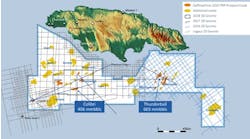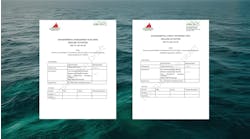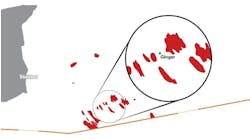DORIS Engineering has presented the findings of its ‘Fit for Purpose’ (FFP) project to various offshore operators planning new field developments. The company prepared the report over a seven-month period in 2016, in response to growing concerns over the escalating costs of offshore projects. The report identified the industry’s tendency to over-design and over-specify offshore facilities as one of the main causes of cost over-runs.
It was an internally organized initiative involving 20 of the contractor’s engineers full-time (and up to 40 at peak), which coincided with a period when prospects for major new offshore projects were very limited. DORIS worked in co-operation with over 30 equipment vendors, in addition to shipyards, NOCs, IOCs and various independent oil companies, drawing up a three-step approach:
‘Prepare’, involving identification of design rules and optimization following an internal brainstorming session, with the team accepting that there is no single optimum design solution, but rather a combination of cost-saving solutions
‘Execute’ – apply findings from step 1 on a study case (from a prior detail engineering project) with supporting documents, methodologies and design guidelines
‘Compare’ FFP design and base case, and validate the approach as it applies, for instance, to weights, I/Os, overall dimensions, and costs for equipment/packages and materials supply.
“As a result of this study, we have developed tools, documents and templates and an approach that we are ready to implement,” said a company spokesman. “This approach helps us to assess risk and develop designs and specifications during the FEED [front end engineering design] that allow the cost of the facilities to be cut in the execution phase.” Step 3 led to a reduction of over 30% in the topsides weight; of more than 15% in the platform’s footprint; and a 40% reduction of I/Os (inputs/outputs) for the control systems.
During 2016, DORIS’ management also travelled to South Korea to present the FFP philosophy to the country’s three main shipyard groups, DSME, Hyundai Heavy Industries and Samsung Heavy Industries. The aim was to determine how DORIS’ approach and the standardization initiatives that the yards have been working on themselves under a joint project could come together to produce a final product. “Our idea is, we will offer to perform the detail engineering for all of them, using our approach to do things differently, allowing the process to go faster, smoother and more efficiently with less risk built into the price,” explained DORIS’ Managing Director Nicolas Parsloe.
Benefits of the FFP approach are said to include increased design flexibility, making the design more resilient to modifications and thereby decreasing the impact of engineering on procurement; optimization of secondary equipment design and of global design (piping, structures); reduced schedule risk; no continuous engineering re-work or equipment integration; and a smooth transition to construction. The FFP is also said to help the EPC contractors during the bidding period as it allows them to propose alternative designs with lower cost, and affords greater flexibility in terms of procurement. “In the bid phase, this helps reduce the margin of risk,” Parsloe said, “allowing the overall product to be adapted to a price that oil companies are willing to pay in the current market, and which at the same time fits the project’s budget.”


